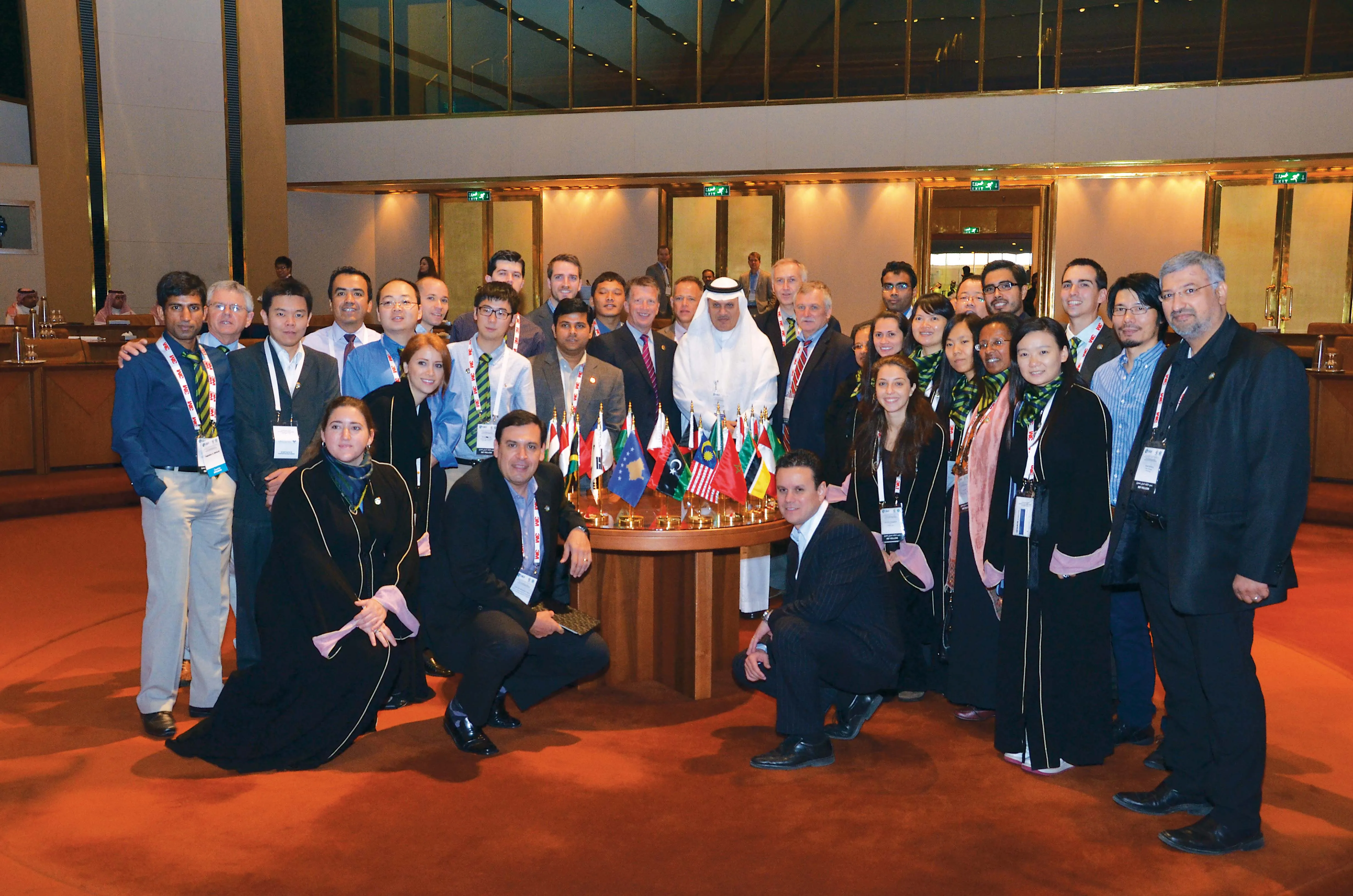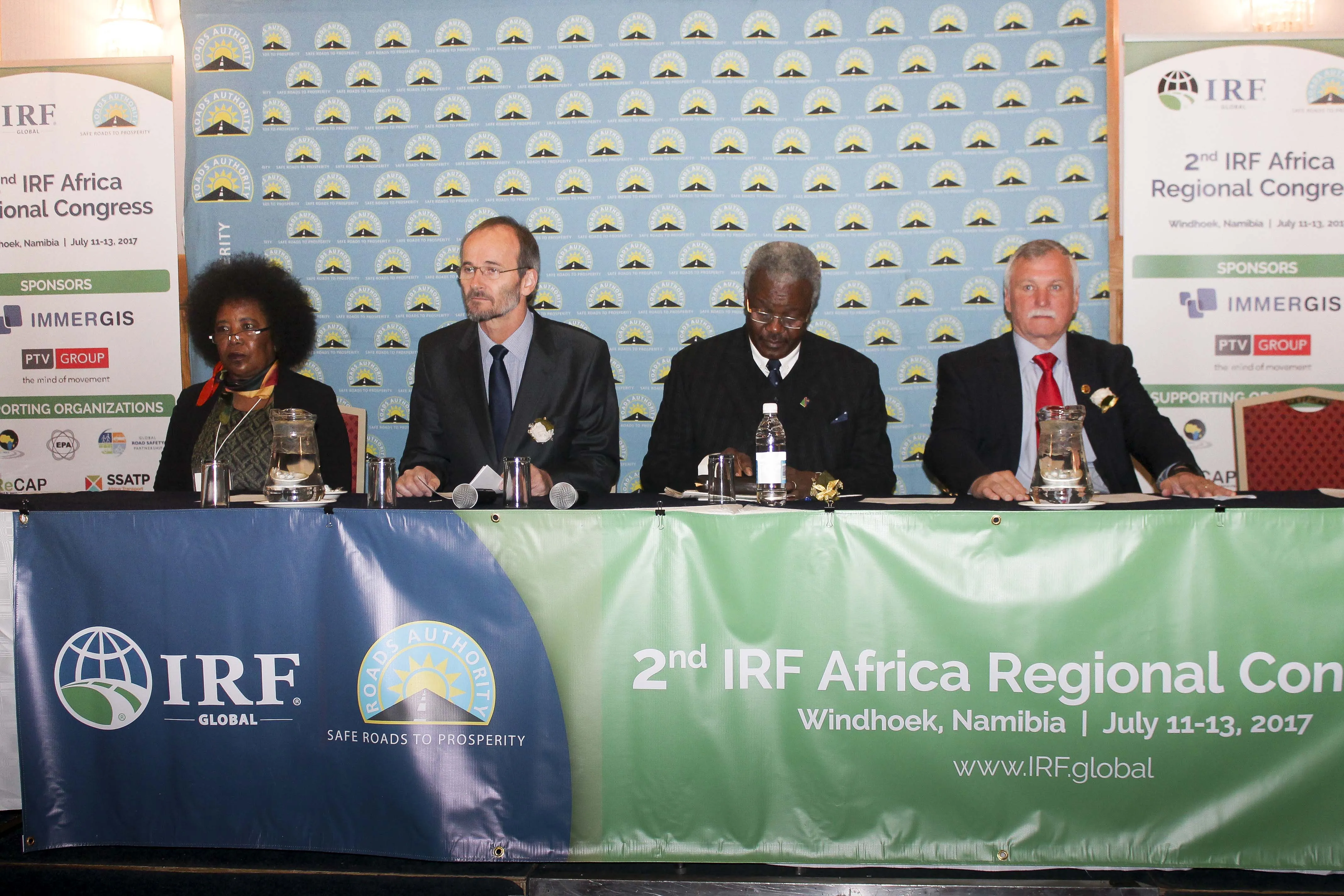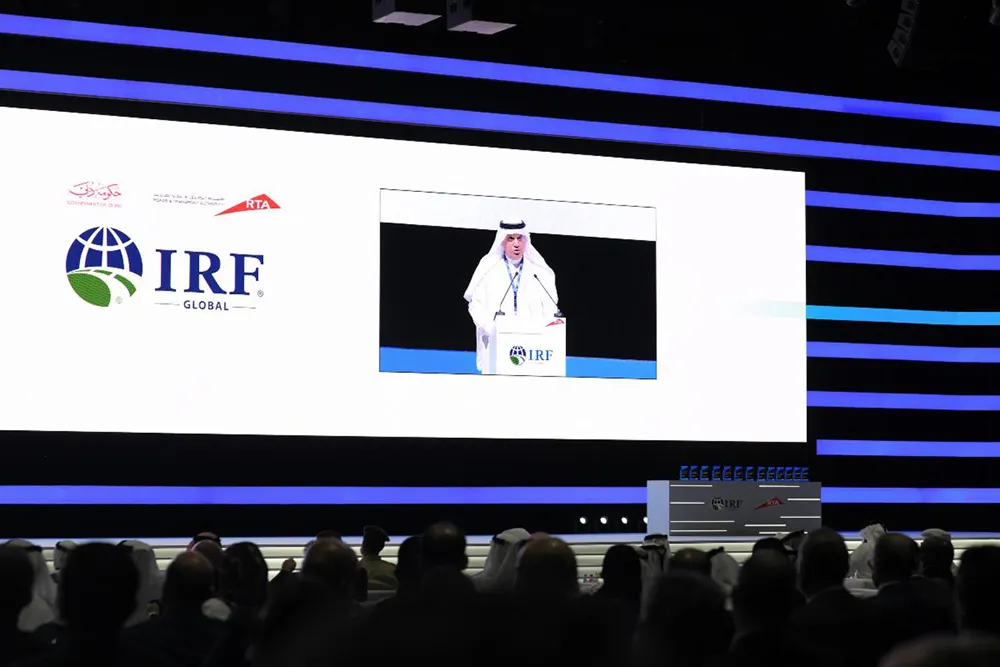The IRF has helped educate the next generation of leaders since 1949 Sixty-five years after its founding, the IRF Fellowship Program for graduate students of engineering and transportation policy remains a cornerstone of the IRF’s work. Since 1949, IRF members and donors have helped fund the education of more than 1,346 transportation professionals from 118 countries. The Fellowship Program identifies international students with outstanding potential and helps nurture them as they take their place as the ne
June 30, 2014
Read time: 3 mins

The IRF has helped educate the next generation of leaders since 1949
Sixty-five years after its founding, the IRF Fellowship Program for graduate students of engineering and transportation policy remains a cornerstone of the IRF’s work. Since 1949, IRF members and donors have helped fund the education of more than 1,346 transportation professionals from 118 countries. The Fellowship Program identifies international students with outstanding potential and helps nurture them as they take their place as the next generation of transportation industry leaders.
Every year, one-time financial grants are awarded by the International Road Educational Foundation to a select group of applicants based on a strong academic background, professional qualifications and leadership potential. The new class of IRF Fellows meets every year in Washington, DC for the week-long IRF Road Scholar Program designed to enhance their leadership skills and provide valuable insight into the transportation industry through meetings with successful business leaders.
Many IRF Fellows have become high government officials, as well as leaders in the private sector and in academia, where they are in a position to exercise a multiplier effect in the transfer of technology and information. Through the IRF Fellows Alumni Association, founded in 1993 by the late Dr Sadamu Mino, strong bonds are formed among the Fellows, the IRF and the IRF’s member organisations.
Recipients of the IRF Fellowship must be graduate engineers or graduates in other disciplines such as public administration, transportation economics, traffic engineering, transportation policy, structures, design, planning, highway maintenance, or mechanical engineering, which have application in a highway department or highway related organisation or firm. They must possess a good working knowledge of the English language if studying in the United States.
“The Fellowship Program provides IRF members a unique opportunity to meet and develop relationships with the next generation of transportation industry leaders,” said Patrick Sankey, president & CEO of the IRF. Mr. Sankey added, “While there are many qualified students, the IRF is seeking candidates who possess a strong passion and believe in the immense socio-economic benefits of having better, safer, and more sustainable roads and transportation networks in their home countries and around the world.”
The IRF encourages all its Members in good standing as well as IRF Fellow Alumni to submit nominations for the Class of 2016. Students not nominated by an IRF Member or IRF Fellow may apply for a grant; however, greater consideration will be given to those students nominated by an IRF Member or Fellow. Students awarded grants will be enrolled in a US. university for the fall semester of 2015. Nominations must be received by September 30, 2014.
3918 IRF Washington
Dr Essam Radwan, IREF chairman said, “The IRF Fellowship Program has always been and will always be a catalyst for educating and training the next generation of international transportation professionals. I have had the privilege of teaching Fellows at three universities […] they are all successful professionals in their home countries and take pride in being affiliated with the IRF. The Fellowship Program is a win/win for our member universities and for the industry as a whole”
Sixty-five years after its founding, the IRF Fellowship Program for graduate students of engineering and transportation policy remains a cornerstone of the IRF’s work. Since 1949, IRF members and donors have helped fund the education of more than 1,346 transportation professionals from 118 countries. The Fellowship Program identifies international students with outstanding potential and helps nurture them as they take their place as the next generation of transportation industry leaders.
Every year, one-time financial grants are awarded by the International Road Educational Foundation to a select group of applicants based on a strong academic background, professional qualifications and leadership potential. The new class of IRF Fellows meets every year in Washington, DC for the week-long IRF Road Scholar Program designed to enhance their leadership skills and provide valuable insight into the transportation industry through meetings with successful business leaders.
Many IRF Fellows have become high government officials, as well as leaders in the private sector and in academia, where they are in a position to exercise a multiplier effect in the transfer of technology and information. Through the IRF Fellows Alumni Association, founded in 1993 by the late Dr Sadamu Mino, strong bonds are formed among the Fellows, the IRF and the IRF’s member organisations.
Recipients of the IRF Fellowship must be graduate engineers or graduates in other disciplines such as public administration, transportation economics, traffic engineering, transportation policy, structures, design, planning, highway maintenance, or mechanical engineering, which have application in a highway department or highway related organisation or firm. They must possess a good working knowledge of the English language if studying in the United States.
“The Fellowship Program provides IRF members a unique opportunity to meet and develop relationships with the next generation of transportation industry leaders,” said Patrick Sankey, president & CEO of the IRF. Mr. Sankey added, “While there are many qualified students, the IRF is seeking candidates who possess a strong passion and believe in the immense socio-economic benefits of having better, safer, and more sustainable roads and transportation networks in their home countries and around the world.”
The IRF encourages all its Members in good standing as well as IRF Fellow Alumni to submit nominations for the Class of 2016. Students not nominated by an IRF Member or IRF Fellow may apply for a grant; however, greater consideration will be given to those students nominated by an IRF Member or Fellow. Students awarded grants will be enrolled in a US. university for the fall semester of 2015. Nominations must be received by September 30, 2014.
Dr Essam Radwan, IREF chairman said, “The IRF Fellowship Program has always been and will always be a catalyst for educating and training the next generation of international transportation professionals. I have had the privilege of teaching Fellows at three universities […] they are all successful professionals in their home countries and take pride in being affiliated with the IRF. The Fellowship Program is a win/win for our member universities and for the industry as a whole”








